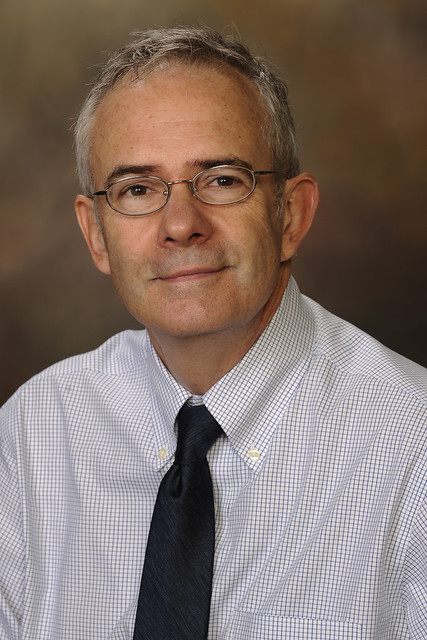Auburn Professor Graeme Lockaby to present prestigious William H. Patrick Lectureship at international meeting of soil scientists
Article body
Graeme Lockaby, a professor in Auburn University's School of Forestry and Wildlife Sciences, will present the William H. Patrick Memorial Lectureship at the 2017 international annual meetings of the American Society of Agronomy, Crop Science Society of America and Soil Science Society of America in October in Tampa, Florida.
Lockaby is Clinton McClure Professor of Forest Biochemistry and Environmental Health and associate dean of research at the School of Forestry and Wildlife Sciences at Auburn University. He also serves as director of the Center for Environmental Studies at the Urban-Rural Interface.
The memorial lectureship was established in honor of Patrick, a pioneer of wetland soils research, to recognize a distinguished scientist who has made significant contributions to some aspect of wetland soils.
The 2017 International Annual Meeting is expected to draw more than 4,000 scientists, professionals, educators and students from around the world and features hundreds of presentations on the latest research in agronomy, crop science and soil science.
This year's theme is "Managing Global Resources for a Secure Future." Lecturers will present their research related to the topics of biogeochemical processing and cycling of nutrients, heavy metals and pesticides in wetland soils.
Lockaby earned his bachelor's and master's degrees in forestry from Clemson University and his doctorate in agronomy and soils from Mississippi State University.
His research focuses on the biogeochemistry of forested floodplains, water quality and the relationships between wetlands and human health. In particular, he has studied relationships between floodplain net primary productivity and circulation of macronutrients through decomposition, litterfall, internal translocation and other pathways and has worked to clarify biogeochemical distinctions between eutrophic and oligotrophic floodplain systems.
Lockaby also investigates the influence of forest loss through urbanization on water and disease vectors for West Nile virus.
He has authored or co-authored 111 refereed journal articles and eight book chapters and has mentored 25 graduate students as major professor.
"Lockaby's research and professional experiences fit well with this theme and the spirit of the William H. Patrick Lectureship," stated Bruce Vasilas, Chair of the Patrick Lecturer Committee and Professor of Plant and Soil Sciences at the University of Delaware.
For more information about the international annual meetings of the American Society of Agronomy, Crop Science Society of America, and Soil Science Society of America, go to www.acsmeetings.org.
The Auburn University School of Forestry and Wildlife Sciences is a flagship for forestry and wildlife, and natural resources programs in Alabama and beyond. With world-class faculty and state-of-the-art facilities, the school offers a range of academic and research programs within the areas of forestry, wildlife, natural resource management, geospatial and environmental informatics, and sustainable biomaterials and packaging.
Related Media
Media interested in this story can contact Communications Director Preston Sparks at (334) 844-9999 or preston.sparks@auburn.edu.
Auburn University is a nationally ranked land grant institution recognized for its commitment to world-class scholarship, interdisciplinary research with an elite, top-tier Carnegie R1 classification, life-changing outreach with Carnegie’s Community Engagement designation and an undergraduate education experience second to none. Auburn is home to more than 30,000 students, and its faculty and research partners collaborate to develop and deliver meaningful scholarship, science and technology-based advancements that meet pressing regional, national and global needs. Auburn’s commitment to active student engagement, professional success and public/private partnership drives a growing reputation for outreach and extension that delivers broad economic, health and societal impact.





